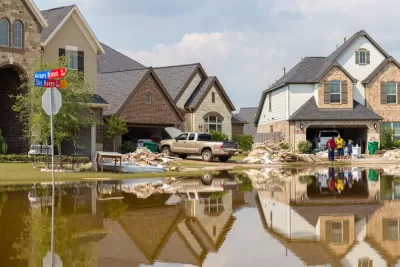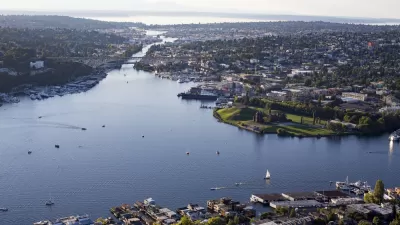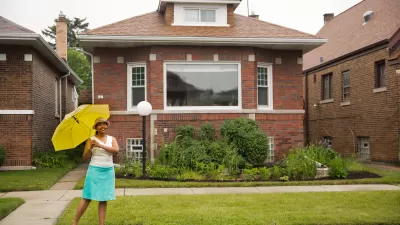The Rockefeller Foundation has cited costs and a new strategic direction to explain why it abruptly cut off the program this year. While the work may live on in some form, the move underscores the risks of relying on private funding.

"Established in 2013 by the Rockefeller Foundation in the wake of Hurricane Katrina and Superstorm Sandy, 100 Resilient Cities was born out of the idea that local governments needed help planning for disasters and combating persistent social maladies," Laura Bliss writes. With Rockefeller writing the checks, it grew into a groundbreaking effort to embed resilience into the conceptual vocabulary of local governments.
But this spring, the foundation decided to wind the program down. "For local governments, the whiplash may be a reminder of the risks of relying of private dollars to create public policies," Bliss writes.
Some elements of Rockefeller's resilience work may survive. The Rockefeller Foundation is helping bankroll the Adrienne Arsht-Rockefeller Foundation Resilience Center, for example, and it has "confirmed that it may keep some elements of the 100 Resilient Cities program alive."
As for why Rockefeller pulled the plug, the rationale partly has to do with cost: "while academic research supports the theory of building urban resilience through institutional change, it was challenging to measure short-term results directed by the program." Rockefeller's president Raj Shah also wants to steer the foundation in a different direction, prioritizing measurable outcomes in areas like global health.
100 Resilient Cities' president, Michael Berkowitz, has "told staff that he and a group of soon-to-be-former 100RC officers were preparing to start a new nonprofit with the mission of helping cities implement resilience projects." A new venture would work on a project-by-project basis, Bliss writes, rather than activating a network of cities. And it will draw on multiple funding sources. A formal announcement is expected this July.
FULL STORY: The Rise, Fall, and Possible Rebirth of 100 Resilient Cities

Maui's Vacation Rental Debate Turns Ugly
Verbal attacks, misinformation campaigns and fistfights plague a high-stakes debate to convert thousands of vacation rentals into long-term housing.

Planetizen Federal Action Tracker
A weekly monitor of how Trump’s orders and actions are impacting planners and planning in America.

San Francisco Suspends Traffic Calming Amidst Record Deaths
Citing “a challenging fiscal landscape,” the city will cease the program on the heels of 42 traffic deaths, including 24 pedestrians.

Defunct Pittsburgh Power Plant to Become Residential Tower
A decommissioned steam heat plant will be redeveloped into almost 100 affordable housing units.

Trump Prompts Restructuring of Transportation Research Board in “Unprecedented Overreach”
The TRB has eliminated more than half of its committees including those focused on climate, equity, and cities.

Amtrak Rolls Out New Orleans to Alabama “Mardi Gras” Train
The new service will operate morning and evening departures between Mobile and New Orleans.
Urban Design for Planners 1: Software Tools
This six-course series explores essential urban design concepts using open source software and equips planners with the tools they need to participate fully in the urban design process.
Planning for Universal Design
Learn the tools for implementing Universal Design in planning regulations.
Heyer Gruel & Associates PA
JM Goldson LLC
Custer County Colorado
City of Camden Redevelopment Agency
City of Astoria
Transportation Research & Education Center (TREC) at Portland State University
Jefferson Parish Government
Camden Redevelopment Agency
City of Claremont





























